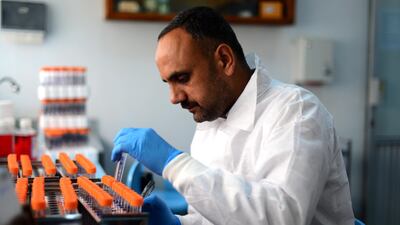Last year just 22 cases of polio were reported to the World Health Organisation. This represents a tremendous victory against a cruel disease that in 1988 claimed 350,000 victims − mainly children under five − in 125 countries. Today, thanks to the success of a decades-long international vaccine programme, it retains a foothold in only three countries: Afghanistan, Pakistan and Nigeria. World Polio Day tomorrow, however, serves as a reminder that it is not yet time to celebrate.
The impact of the Global Polio Eradication Initiative, an unprecedented 30-year partnership of governments, institutions and other partners launched in 1988, cannot be overstated and demonstrates the power of collaboration under visionary leadership.
The UN estimates that the lives of 1.5 million children have been saved and that there are 16 million people walking the earth today who would otherwise have been paralysed by the disease for life.
All this, however, could be undone so long as a single child anywhere in the world remains infected with the polio virus.
If imported into a polio-free country, poliomyelitis could spread rapidly among unimmunised populations and the UN predicts that failure to completely eradicate the disease could result in as many as 200,000 new cases every year within the next 10 years.
There is no cure for polio, but it can be prevented with a vaccine which, administered multiple times, can protect against it for life.
Thanks to a range of factors, from violence and social unrest to cultural and religious barriers, thousands of children remain unvaccinated the countries where it is still a threat. So long as they do, millions more around the world are at risk.
In 2013 the Polio Eradication and Endgame Strategic Plan was unveiled at a global vaccine summit in the UAE, a nation that has worked tirelessly to get vaccines to more than 57 million children.
Since 2011, Sheikh Mohamed bin Zayed has donated $167 million to support global programmes dedicated to ending the disease.
That goal may not yet have been achieved, but it is within our grasp. It is now crucial that the global community, philanthropists and business leaders come together and make the final push to eliminate polio once and for all.
Stamping out this crippling virus, which affects some of the most vulnerable people on the planet, is a moral imperative that transcends national borders and requires a collective effort.

